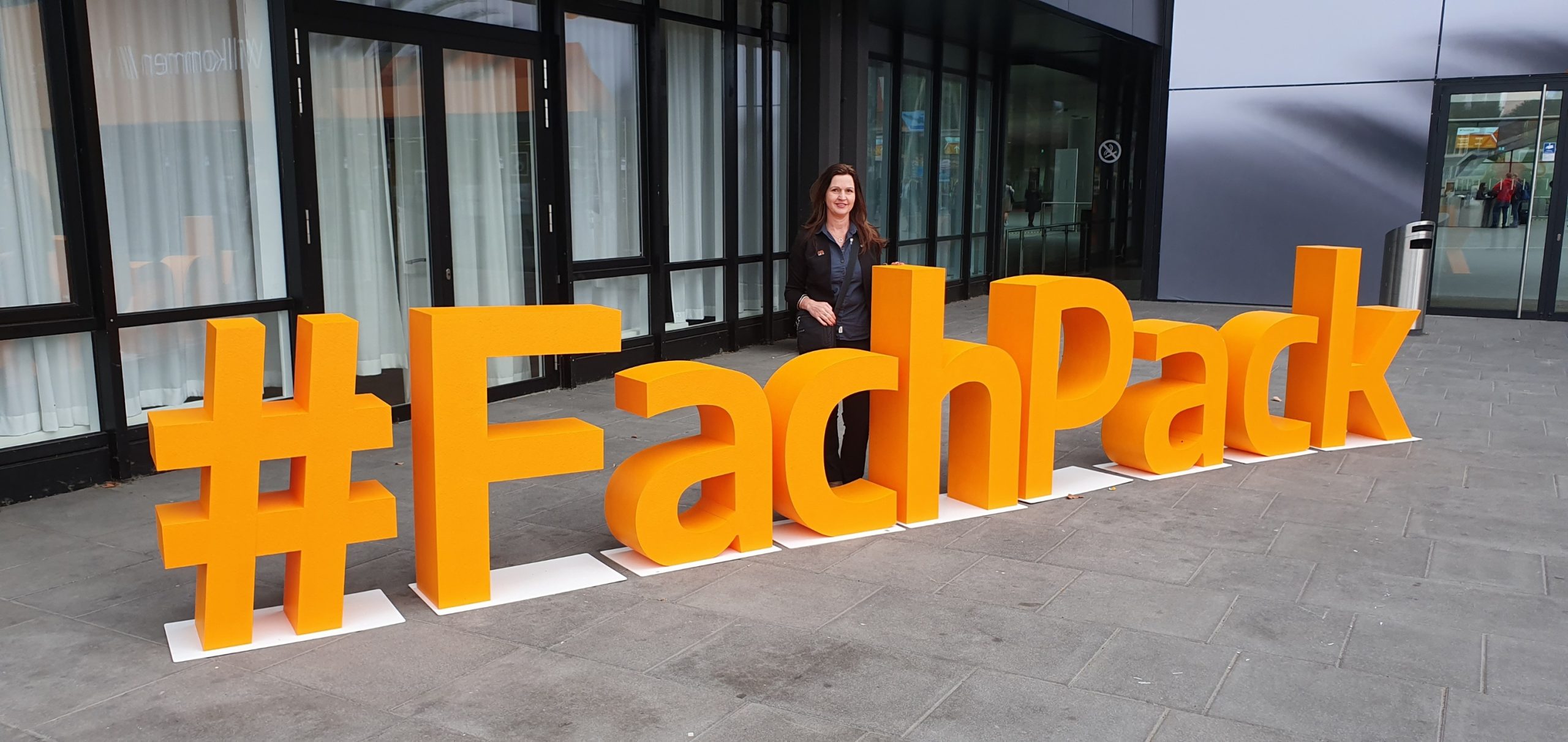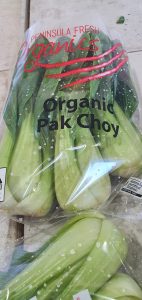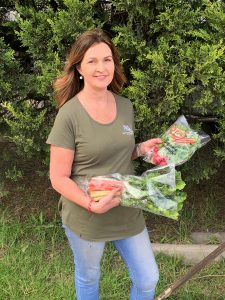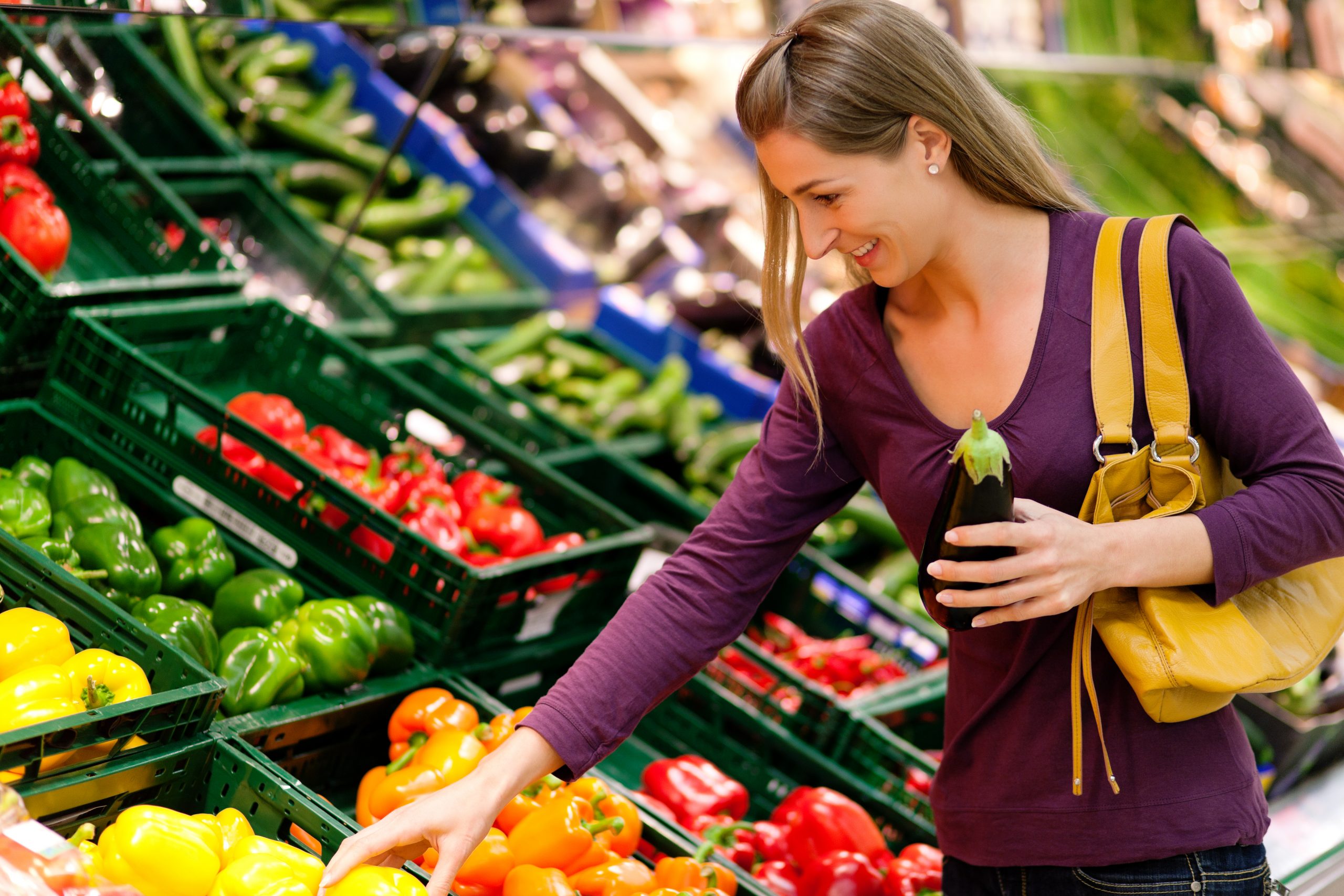
Life beyond COVID-19: Key trends as we move to post-COVID ‘normal’
25 November 2021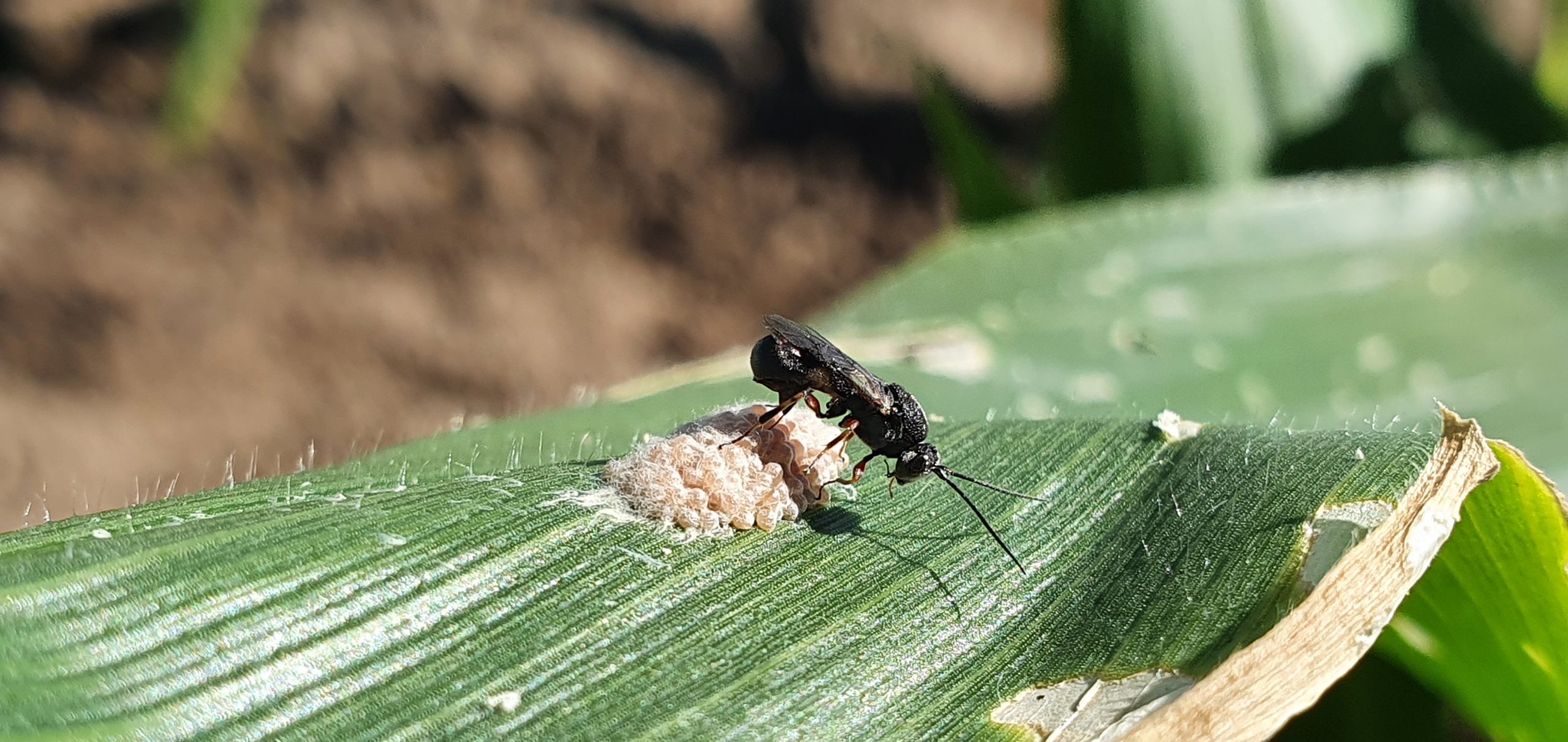
Managing fall armyworm: A destructive, fast-moving pest
25 November 2021Owner of Peninsula Fresh Organics, Natasha Shields was awarded a Nuffield Scholarship with support from The William Buckland Foundation. Through her scholarship, Natasha travelled to Asia, Europe, the Middle East and North America to find alternatives to plastic packaging on fruit and vegetable products, such as bioplastics and misting systems in supermarkets.
Natasha Shields has been an organic vegetable grower alongside her husband, Wayne, for over 10 years. The pair run Peninsula Fresh Organics, located in Baxter on Victoria’s Mornington Peninsula.
Over the years, which have involved attending hundreds of farmers’ markers, one thing became clear to Natasha and Wayne: their organic veg consumers do not like plastic coverings on fresh produce.
In that time, Peninsula Fresh Organics has grown from just three acres in 2010 to almost 200 acres today, and it has also expanded beyond the local markets. It now supplies two supermarket chains and wholesale markets in Victoria, New South Wales and Queensland – which has created a ‘plastic problem’ for Natasha and Wayne.
“A requirement of the supermarkets and some of the wholesale retail stores, is that our organic produce is placed in a plastic sleeve/bag – usually with a barcode, so that it can be scanned at the register to get the correct price,” Natasha says.
“Without this system, the organic produce could easily be confused with the equivalent conventional item also for sale. The plastic sleeve/bag on the produce also prolongs its shelf life, as it is protected from the drying air in the stores. Plastic and other forms of packaging have another added benefit of protecting the item from being handled by consumers, thus adding another layer of food safety.”
Scholarship success
This conundrum spurred Natasha to apply for a Nuffield Scholarship, which was successful. She travelled around the world as part of the six-week Global Focus Program with a group of nine scholars. She attended exhibitions at the Sustainable Food Summit in Singapore, the Asia Fruit Logistica in Hong Kong and FachPack in Nuremberg, where she was able to speak to many company representatives about some of the great innovations around packaging and produce currently being used around the world.
In March 2021, Natasha released a report that looked at finding alternatives to traditional plastic packaging for fresh food producers available in the global market. This focused on sustainability, affordability while ensuring food safety, and how friendly it is for the environment.
It was also timely given the global COVID-19 pandemic. Since the pandemic began, Natasha observed that many consumers at local farmers’ markets have been asking for the produce to be packaged – more than ever before – to reduce the risk of the virus potentially being present on their food.
“Consumer demands and perceptions dominate the need for packaging of some kind, and the demands from the retail and wholesale sectors around ease of purchasing and to some extent, food safety, also drive this requirement to find cost effective and sustainable packaging,” Natasha says.
“The implications of COVID-19 and the need for increased hygiene standards demonstrate that the ‘war on waste’ will have to wait, as consumers demand protection from handling and contamination of their fresh food in supermarkets and other settings.”
Current available options
Natasha travelled to Singapore, Japan, Indonesia, France, Canada and the United States of America (U.S.A.) with the scholar group in 2019, and then to Hong Kong, Singapore, Ireland, Italy, the United Kingdom, Denmark, Sweden, Germany, Spain, Dubai, and the U.S.A. to conduct independent research.
In her report, Natasha outlines five examples of new technologies that are currently available in the global market as alternatives to traditional plastic packaging. This is based on what she observed on her travels. These include:
- Misting systems: There are several retail stores and supermarkets around the globe that are using misting and watering systems. Contronics in The Netherlands has developed a Dry Mist technology that helps to counteract the effects of typical store conditions. Aside from the benefits of reducing both packaging and food waste, Natasha believes the Dry Mist system looks really good and gives produce a bit of a ‘wow factor’ with the ’show of mist above the produce’ in the many stores it is installed in.
- Cellugy: Cellugy is a company that initially formed at Aarhus University in Denmark. It was started in a living room in 2017 by two researchers exploring the potential use of nanocellulose for bioplastics. The product is a cellulose derived from food waste – primarily fruit pulp which turns into sugars when fermented.
- Grounded Packaging Company: Natasha met with Nathan Graham from Grounded Packaging, which has manufacturing plants in the U.S.A., Germany, Israel, China and Malaysia. Their product is a compostable film or flexible sleeve made from rice, potatoes, corn and copolymer.
- Nativia by Taghleef Industries: Natasha met with Olivier Nickel from Taghleef Industries while attending Fachpack in Nuremberg. Olivier was keen to explain the processes involved in manufacturing his company’s product, Nativia Bio Based Films. Nativia is a bioplastic made primarily from corn starch and/or sugar cane or cellulose. Due to the bio-based content and lower energy consumption, Polylactic Acid (PLA) delivers a lower carbon footprint.
- Jonatura – Biodegradable packaging: Patrick Stumel from Jonatura declared that the aim of the company is to replace conventional packaging made from fossil fuels to that of raw materials from renewable sources. It believes that this is what forms the basis of an ecological packaging industry.
“These examples provide alternatives to plastic packaging that Australian producers, retailers and consumers can consider as comfortable solutions to the current impasse in single-use plastics and waste management,” Natasha says.
“The challenge lies in the major retailers and their willingness to look at either recyclable packaging or finding a way to effectively handle compostable packaging and educating consumers on the correct way to deal with the packaging chosen. Another factor to consider is the availability of plastic alternatives in Australia, and the cost of this to the producer.”
The bottom line
The issues and challenges surrounding plastic packaging on fresh produce are ongoing in Australia and globally, Natasha says.
“There are alternatives to plastic packaging being used in the global market, and most of these are economically viable options to keep produce fresher for longer,” she explains.
“Consumer perceptions, retail demands, different needs of wholesalers and issues around food safety – in particular during COVID-19 and the need for increased hygiene standards – have all indicated that alternatives to traditional plastic packaging are needed.
“While these may enable a more ‘circular economy’ in relation to produce and packaging, ultimately the results will depend on consumer awareness and understanding, and the requirement for labelling and national and international standards to ensure a competitive and level market. The innovations and solutions examined – including misting and various bioplastics and compostable packaging – are all part of the solution.”
Natasha’s recommendations following her scholarship report
- Further research is needed to better understand the economic impact of COVID-19 restrictions and short- and long-term future preferences for wrapped or packaged food for fresh produce.
- Further government investment is needed into creating more standardised labelling and verifications.
- Further investment is needed to research plastic alternatives in Australia.
- For compostable packaging to be a future consideration, the cost would mostly likely need to be reduced – and the easiest way to do this would be to increase demand (bulk buying by multiple producers); therefore, bringing the cost or production down.
- Major retail chains need to be consistent with their fresh food packaging preferences to eliminate the need for growers to have multiple types of packaging.
- Local government needs to play a greater role in sustainability and enforcing either recycling or composting options to consumers.
Driving growers’ knowledge and businesses
A strategic levy investment under the Hort Innovation Vegetable Fund, Nuffield Scholarship (VG14065) provides funding to support Nuffield Scholars in the vegetable industry. There has been one Hort Innovation scholarship awarded each year of the project’s life from 2016-2021.
Nuffield Scholarships are a chance for Australians in agriculture to grow their practical knowledge and a broad variety of skills, while heading overseas to study a topic related to their industry.
Hort Innovation-supported growers from 2016-2021 include:
Michael Vorrasi, who explored ways to overcome barriers to consumption and the role that value-added vegetables can play.
Bao Duy Nguyen researched currently available methods for Australian horticulture producers to boost the efficiency and productivity of low-tech greenhouse systems and unlock new market opportunities.
Steve Grist researched applications and solutions for small farms to turn waste from a costly problem into a resource.
Christina Kelman is looking at ways the horticulture industry can increase outputs while reducing inputs and farming sustainably.
Catherine Velisha is researching how horticultural family businesses can build and harness the skills they need to be competitive in the marketplace.
Michael Densham will investigate how the design of intensive production systems can drive increased productivity and profitability of small-scale farming operations.
Links to each grower’s report can be found here.
Find out more
To read Natasha Shields’ report Alternatives to Plastic Packaging on Fresh Produce – Options for Vegetable Growers, please click here. For more information, or to read more reports like Natasha’s, please click here.
Cover image: Natasha Shields pictured in Nuremberg, Germany.

